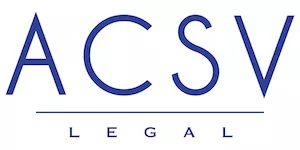1. Legal System
1.1 Legal System and Judicial Order
The legal system in Vietnam follows the civil law tradition and is noticeably influenced by continental European codifications of civil law (particularly the French Civil Code). The Vietnamese legal system consists of a constitution, codes, laws, ordinances, decrees, decisions, circulars, directives and resolutions. Legal texts are published in the Official Gazette. Decrees and circulars contain guidelines to implement laws, codes and ordinances. Local governmental agencies may also issue official letters further guiding the implementation of any of these pieces of legislation.
2. Restrictions on Foreign Investments
2.1 Approval of Foreign Investments
Foreign investment into Vietnam requires approval and licensing by the local authorities, the scope and shape of which largely depend on the nature of the envisaged business. The 2020 Law on Investment, which entered into force on 1 January 2021 and was amended in 2022, retains a clear distinction between foreign and Vietnamese investors. A variety of different procedures apply to foreign investors, defined by the volume and type of their desired Vietnamese engagement. Foreign investors are required to register their investment or obtain certain documents before they can start with their investment projects.
According to the law, a foreign investor is, or is considered as such, with respect to investment conditions and procedures:
- an individual with a foreign nationality;
- an organisation incorporated in a foreign jurisdiction; or
- a Vietnamese-incorporated enterprise in the following cases:
- more than 50% of its charter capital is held by a foreign investor(s), or a part-nership has a majority of partners being foreign individuals in the case of a partnership enterprise;
- more than 50% of its charter capital is held by an enterprise(s) prescribed in paragraph (a) above;
- more than 50% of its charter capital is held by a foreign investor(s) and an economic organisation(s) prescribed in paragraph (a) above.
From the perspective of a foreign investor, Vietnamese investment law makes a general distinction between "conditional/restricted" and "unconditional/unrestricted" business lines. The conditional/restricted ones, in which certain additional requirements may apply, are designed to regulate foreign activities in Vietnam in industries that are considered "sensitive" or "crucial to the national interests of Vietnam". Some restricted business lines may not be performed under foreign ownership at all.
Under the 2020 Law on Investment, there are currently 229 conditional business lines which include, among others:
- accounting services
- insurance services
- securities trading
- betting and casinos
- oil and gas
- healthcare-related businesses
- businesses related to transport
- real estate businesses
- educational businesses
- banking and finance related businesses
- agriculture-related businesses
A foreign investor in the market to purchase an existing (Vietnamese) entity – depending on the nature and scope of its business – may need to obtain prior approval of the Department of Planning and Investment (DPI) (M&A Approval) before capital can be contributed or acquired in an existing enterprise.
2.2 Procedure and Sanctions in the Event of Non-compliance
A foreign investor generally needs to undergo a two-step procedure to obtain a licence to operate in Vietnam. In the first step, the investor shall apply for an Investment Registration Certificate (IRC). In the second step, through the issuance of the Enterprise Registration Certificate (ERC), a new (foreign-owned) company is born.
For local investment by means of M&A, there is a special rule set, which requires the investor to announce the acquisition to the competent authorities and obtain their approval.
Due to the close monitoring of the local business landscape through the competent authorities (DPI) and a tight grip of the State Bank of Vietnam (SBV) on compliance with strict foreign exchange regulations, investing in Vietnam without authoritative approval is hard to imagine in practice.
Should a foreign investor find a way to pour his money into a local business illegally, possible consequences may include mandatory termination of part of or the entire operations of the investment project.
2.3 Commitments Required From Foreign Investors
Commitments from investors (in addition to the investment capital they promise to deploy during their engagement in Vietnam) are not generally regulated. In practice, there are situations where the Vietnamese licensing authority will make their discretional agreement dependent on certain commitments from the investor (eg, contribution to infrastructure developments in the location of the business, etc). There are, however, no generally imposed commitments for foreign investors, outside of the general obligation to comply with all laws of the Vietnam while doing business there.
2.4 Right to Appeal
There may be possibilities for a foreign investor to challenge the negative decision of an investment-related authority (mostly DPI) in court under the 2015 Law on Administrative Procedures. However, such a challenge is not likely to have a positive result; in fact, only when the investor is able to prove that the decision affects their legitimate rights and benefits. This should be difficult as, due to the absence of relevant laws and regulations, any dispute over the requirements of an investment endeavour or the legality of an intended corporate structure and business model will generally be solely governed by the discretion of the competent authority. Vietnamese investment law, therefore, grants the authorities a high level of decision power, which can pose an obstacle to the feasibility or efficacy of some investment types. In these situations, in which the DPI or another authority communicates that it deems an investment to be problematic, oftentimes investors will be given the chance to – through their local counsels and advisers – reiterate their intentions and amend their business plans according to the competent authority's opinions.
3. Corporate Vehicles
3.1 Most Common Forms of Legal Entity
A foreign investor will usually choose one of two main types of legal entities to carry out a project.
Currently, typical options for a foreign-owned legal entity include:
- A limited liability company (LLC) in the form of either a single-member limited liability company (single-member LLC) or a multiplemember limited liability company (multiplemember LLC); and
- A shareholding or joint stock company (JSC).
There are two other types of common commercial presences that could be established to represent foreign investors in Vietnam:
- the representative office, and
- the branch.
The activities these presences can perform depend on treaties between Vietnam and the country in which the head office is based. For business activities that are outside the scope of a treaty or where no treaty exists, an authorisation from the competent Vietnamese authorities is needed. Considering that these are not independent legal entities, the parent company is liable for various aspects, such as debts and obligations. Legal claims can be brought against the parent company.
Representative Office
If a foreign investor desires to have a presence in Vietnam, but does not wish, or is not ready yet, to invest in Vietnam, it may set up a representative office if certain conditions are met. In general, setting up a representative office is quicker and less complicated than acquiring licences and approval for the setting up of a commercial company. One of the conditions is that the business of the foreign investor must have been in operation for at least one year before the foreign investor can submit an application.
To view the full article click, here.
The content of this article is intended to provide a general guide to the subject matter. Specialist advice should be sought about your specific circumstances.




